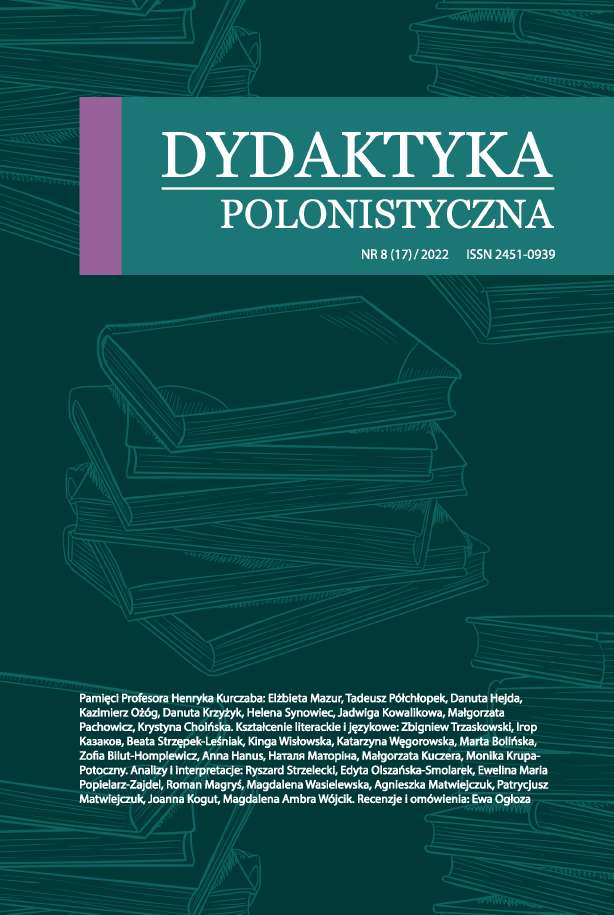Simple or Challenging? Konkrete Poesie and Elfchen in Teaching German as a Foreign Language
Simpel oder anspruchsvoll? Konkrete Poesie und Elfchen im DaF-Unterricht
DOI:
https://doi.org/10.15584/dyd.pol.17.2022.13Keywords:
Konkrete Poesie, teaching German as a foreign language, poetry interpretation, language creativity, ElfchenAbstract
In this paper, we intend to draw attention to the linguistic, cultural and historical aspects of two types of poems popular in German, the so-called Konkrete Poesie and Elfchen, their different forms, as well as their application to teaching a foreign language (here German). Konkrete Poesie (i.e. concrete or visual poetry) has its own literary tradition, and although it was not originally designed for foreign language teaching, it proves effective in this respect. It requires learners to interpret apparently simple texts creatively, which is always linked to the reflection on the interplay between the poem’s visual layout and its overall message. Elfchen, otherwise Elf-Worte-Gedicht (i.e. eleven-word poem), is a type of poetry derived from early childhood education. Applied in German-speaking countries since the late 1980s, it has been successfully transferred to foreign language teaching. Its main purpose is to encourage creative writing and interpretation of short lyrical pieces. The examples discussed show that these distinct lyrical forms can enrich foreign language teaching at different levels of proficiency.


